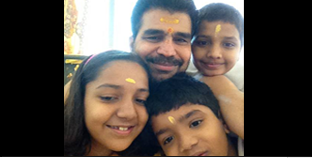1:36nihhatya dhārtarāṣṭrān naḥ kā prītiḥ syāj janārdanapāpam evāśrayed asmān hatvaitān ātatāyinaḥ1:37tasmān nārhā vayaṁ hantuṁ dhārtarāṣṭrān svabāndhavānsvajanaṁ hi kathaṁ hatvā sukhinaḥ syāma mādhava In Śloka 36 and 37, Arjuna
READ MORE
Moreover, integrating spiritual healing practices into your recovery process could also provide additional support and enhance your overall well-being. The primary objective of AA is to carry the message of recovery to alcoholics who are still suffering. The main goals of AA membership are to stay sober and help other alcoholics achieve sobriety. Alcoholics Anonymous (AA) was founded in Akron, Ohio, in 1935, by two alcoholics – Bill W, a stockbroker from New York, and Bob S, a surgeon from Akron. They met through the Oxford Group, a non-alcoholic fellowship that promoted spiritual living.
Continued AA attendance benefits many people and helps them stay sober lifelong. AA Twelve Step programs offer support and acceptance from a loving, non-judgmental community. As an AA member, the social support you receive through sponsorships and meetings can play a vital role in helping you stay clean. Moreover, the 12 steps help to rebuild relationships with loved ones and develop a support network for the future. The 12-Step programs of Alcoholics Anonymous can be very beneficial in helping you heal from the mental health impact of substance abuse and the transition to sober living.
Each person’s journey contributes to a tapestry of healing stories that inspire and motivate others on their path to recovery. Your story matters, and sharing it with others can become a powerful source of hope and inspiration. The courage to reach out for help marks the beginning of a transformative journey. AA meetings take place daily across the globe, both in-person and online, making support accessible whenever you need it. Research shows that the Twelve Steps approach is highly effective in treating alcohol use disorder (AUD). This step fosters a deeper connection with your chosen higher power through practices like prayer or meditation.
By asking a higher power (as you understand it) to remove your defects, you express willingness to change and grow. This isn’t about perfection but progress and self-improvement. You define your own higher power—whether that’s God, nature, or the strength of the group. Sought through prayer and meditation to improve our conscious contact with God as we understood Him, praying only for knowledge of His will for us and the power to carry that out. The 12 Steps work because they address the root causes of addiction, not just the symptoms.
It’s an opportunity to examine past behaviors, mistakes, and patterns honestly. Writing everything down can be powerful and help identify the root causes of addiction, such as trauma, resentment, or guilt. You can search online with your state, province, town, or zip code to find the nearest AA meetings. There’s a Meeting Guide App that you can download on your smart phone that can help you find AA meetings and resources nearby. And while the Twelve Traditions of AA are often less talked about, they serve as the glue that keeps the A.A.
To find an AA sponsor, attend meetings regularly and listen to others. This will help you identify people who resonate with you emotionally. Once you get to know more people in your fellowship, you are free to ask someone else to sponsor you. By sharing your recovery journey and supporting others, you strengthen your sobriety and contribute to the recovery of others. This step emphasizes the importance of giving back and living by the principles of the Twelve Steps. The concept of a higher power remains personal and adaptable.
This incredible community has changed countless lives with its proven method of recovery, which offers a way to sobriety that combines spiritual growth with practical actions. This is a person who has completed all or most of the 12 Steps of Alcoholics Anonymous, has been in the fellowship for at least a year, and are stable in sobriety. A sponsor provides guidance, support, and insight as you begin your own journey with the 12 Steps. They can help you understand the fellowship, answer your questions, work on the 12-steps, and remain accountable.
They emphasize group conscience, personal anonymity, and steer clear of outside contributions, public controversy, and problems of money. Let’s break it down in plain English, from one person in recovery to another. Made direct amends to such people wherever possible, except when to do so would injure them or others. Made a list how many steps are in aa of all persons we had harmed, and became willing to make amends to them all.
While these meetings have helped many people get and stay sober, they may not be for everyone. Some people require more intensive addiction treatment or may want to combine support groups with therapy, medication, or rehab. Others will want alternatives to 12 steps and may benefit from seeking out other support groups for people in recovery. Our addiction treatment programs incorporate part of the 12-step philosophy. We offer a strong aftercare program that includes a 12-step program in Washington.
This reciprocal support system creates a sustainable foundation for long-term sobriety. The concept of powerlessness in AA isn’t about weakness – it’s about acceptance. You recognize that alcohol has taken control of your life, and this admission becomes your first step toward regaining power through surrender. This paradox of gaining strength through accepting powerlessness forms the cornerstone of AA’s approach to recovery.
This step creates accountability and allows for emotional release through honest disclosure. Perfect for meetings, sponsorship work, or personal reflection. Just be open to the idea that something stronger than addiction exists, call it a higher power, the group, or even just hope. We admitted we were powerless over alcohol — that our lives had become unmanageable. Making amends means more than just saying sorry—it’s about righting wrongs in a meaningful way. It may involve repaying debts, repairing relationships, or simply acknowledging past harm.
Were entirely ready to have God remove all these defects of character. Made a decision to turn our will and our lives over to the care of God as we understood Him. In calling the helpline you agree to our Terms and Conditions. We do not receive any fee or commission dependent upon which treatment or provider a caller chooses. Calls to numbers marked with (I) symbols will be answered or returned by one of the treatment providers listed in our Terms and Conditions, each of which is a paid advertiser.
No Schedules for this section.
Spiritual tour
Date & Time : 24-02-2026 - 07-03-2026
Venue : Pancha Dwaraka Yatra
Contact Person : Admin
Contact Number : 9497033111



